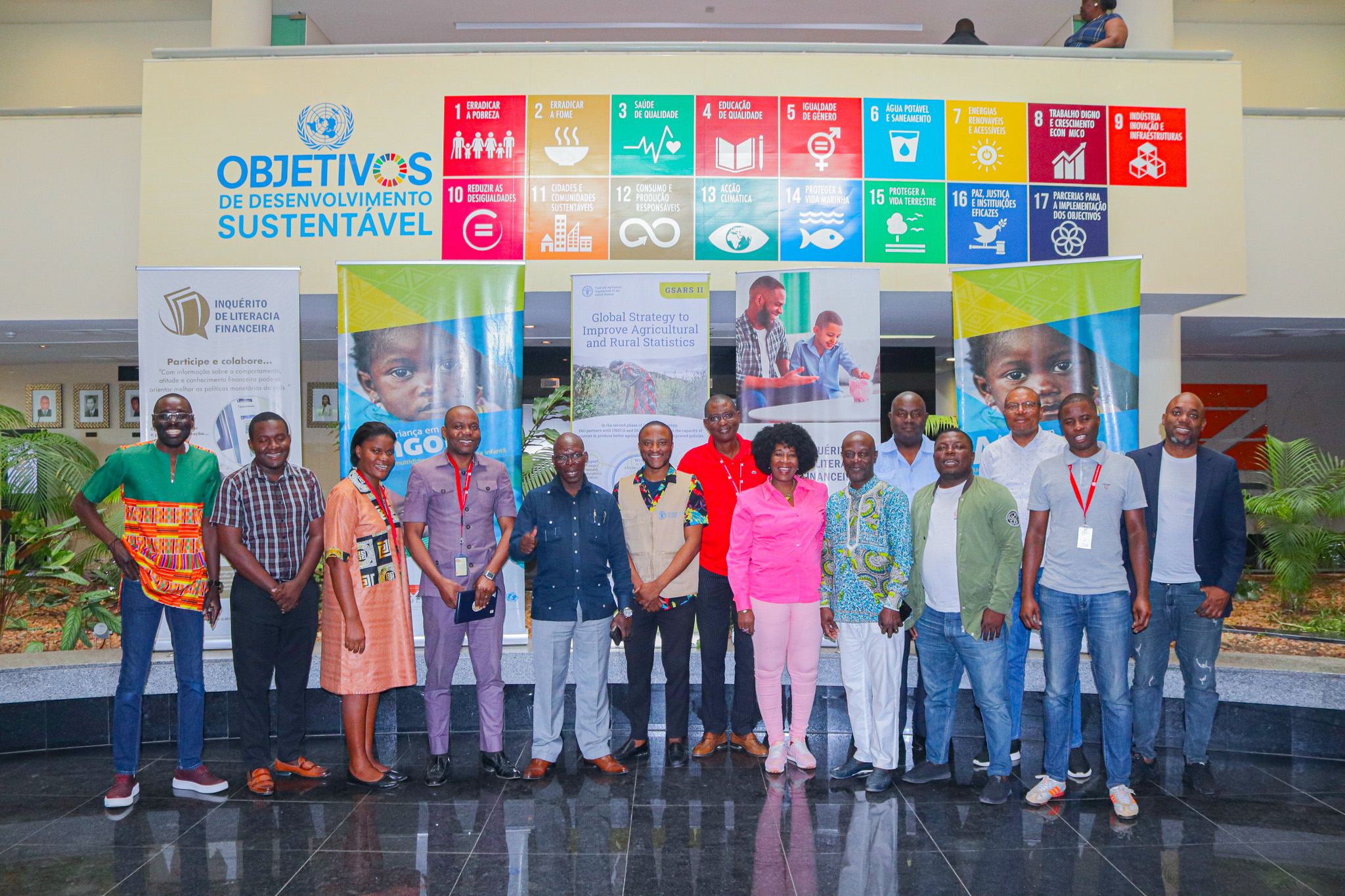
Technical Assistance Workshop on Master Sampling Frame Concludes Successfully in Angola
29/09/2023
Recently, the FAO Statistics Division conducted a notable workshop in Angola as part of its ongoing efforts to enhance the quality and availability of agricultural and rural statistics. Held between August 28th and September 1st, the workshop, led by Carlos Creva Singano, was characterized by hands-on training focused on sampling design, weighting, and estimations.
The Global Strategy to Improve Agricultural and Rural Statistics (GSARS) Phase II steered this initiative, creating pathways for substantial developments in institutional, human, and financial capacities. This program continues to be a guiding force for both national and international statistical systems, providing the necessary framework to cultivate a well-informed approach to rural development and sustainable agricultural production policies.
Notably, this workshop was both practical and interactive, featuring a rich tapestry of exercises and real-world examples to facilitate the application of concepts introduced during the training. The training, which witnessed the participation of 10 individuals, including four females and six males, from the Angola National Statistics Office (INE-Instituto Nacional De Estatísticas), the Ministry of Agriculture and Forestry (Ministério da Agricultura e Florestas) of Angola, and the Ministry of Fisheries and Sea Resources (Ministério das Pescas e Recursos Marinhos), spotlighted the pressing challenges of agricultural estimation, discussing the intricacies of determining parameters such as crop yields, livestock populations, and land use patterns.
The emphasis on agricultural survey design highlighted the importance of adopting an adequate design to ascertain agricultural parameters with precise determination. The curriculum, customized to mirror the agricultural surveys conducted in Angola and other analogous countries, encouraged the direct application of the learned concepts to participants' work spheres. This approach, grounded in real-world examples and exercises, sought to foster an environment where the knowledge and skills acquired could be effectively utilized in the Angolan agricultural context.
In the wrap-up, the consensus leaned towards a successful and enriching session, hinting at promising prospects for the GSARS initiative to nurture a data-rich and vibrant agricultural sector in Angola. Future endeavors are set to focus on refining the training process further, considering having these training workshops over an extended period of time.
